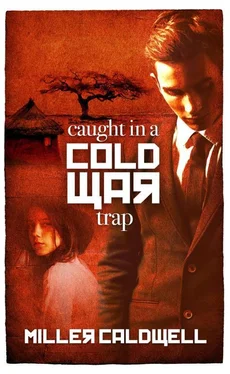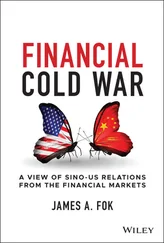Miller Caldwell
CAUGHT IN A COLD WAR TRAP
In memory of Elizabeth Connie Caldwell,
who died far too young
Have you ever been to the island of Jura? Not many people have. If you are a whisky connoisseur you possibly toured the island’s distillery to taste the Isle of Jura single malt. Perhaps you were a climber assaulting the famous Paps of Jura, or a sailor assessing the treacherous cauldron of the Corryvreckan whirlpool from the safety of land. Maybe you needed to imbibe the presence of George Orwell (aka Eric Blair) who completed Nineteen Eighty-Four at Barnhill on the north of the island. That’s about all you can do on Jura, which is why not many go there. That however, may be its attraction.
I was there during the Cold War and there my spying career took roots. I was on a family holiday in July 1967. In the third week, my life changed forever.
My name is Robert Harvie and on that holiday I turned sixteen years of age. My father was a Church of Scotland minister. Minister’s families were not rich, so the holidays were the only real perks we enjoyed. Dad would bring four sermons with him each summer and the pulpit exchange was complete when our manse in Glasgow was occupied by the minister whose manse we lived in for a month. We usually enjoyed somewhere with fresh sea air, while the other minister and his family explored the culture of the Gallus Glaswegians, their numerous parks and the animated city which ‘Smiles Better’ with its keen sense of humour.
It was a wet morning. I remember that well. A real humdinger of a downpour, I heard my father say. I stood in the small north facing wooden porch while the salty air filled my lungs. The rain made the nearby coastline of Mull of Kintyre invisible. I cursed this four-week island break for being neither summer, nor a holiday. I longed to be home in the city engaging in the many different interests I had.
By lunchtime, the rain had retreated. A tiny patch of blue sky fought through the grey cloud, offering a ray of hope. The land in slow progress began to have a re-birth. Colours became vibrant once more and the single track road’s tarmac glistened. I focussed on a snail crossing the road. It was not risking a car’s approach; few cars were on the island but I feared a seagull might be tempted to devour the slow-moving creature. I ran towards it in haste. I picked up the snail and placed it on the grass verge. It felt good—a good deed accomplished on a boring day. The snail was insecure and unwilling to reappear from its shell at first. I waited in silence. It did too. Then I smiled as it continued its journey into grassy cover.
I turned around and saw the sun settle on a verdant hillock behind the manse. I decided to get to its summit and take the family Bush radio with me. My mother approved my plan and I set off. It was a steep climb and my route was circuitous—to avoid calf strain. I stopped and turned around. I saw a tanker in the distance. It moved slowly like that reluctant snail I helped cross the road. I imagined myself on the ship, going somewhere exotic. It was sailing down the Firth of Clyde after all, and that perhaps meant an American trip, even South America. There again it might just be going to Ireland. My thoughts came back to land.
The swirling wind dictated which way my blond hair would flow as I arrived breathless on the crest of the hill. My foot caught a heather clad mound. Then I saw I had caused a disturbance to the zigzag of an angry adder. It moved like a retracting hose away from me and I relaxed. I forgot to mention—Jura had a number of vipers lurking in the undergrowth in the hills. On warm sunny days, they could be seen on any open land squirming around on the warm ground. I found a flat grassy bank and sat down.
The Bush radio gave me the Home Service and the Light programme. I could not concentrate on their urban offerings so changed the button at the top to short wave and turned the dial. I caught some French programme and lingered to hear an excited high-pitched Parisian woman. It could advance my French studies, which would resume in two weeks’ time back at school. However, after I had heard a sentence or two of her rapid French fire I could not follow her line of thought. I turned the dial further on. This time I heard a farming report. I gave up re-tuning. I kept the station on and lay back to absorb some sun. I could have fallen asleep in a matter of moments but there was something odd about the programme.
The announcer spoke about English Ayrshire cows. What a howler. That was akin to saying Eccles cakes come from Aberdeen. There was more to confuse me. The reporter spoke about the 12 coal mines in Suffolk, the powerhouse of energy for the south of England. Suffolk coal? I knew these facts to be wrong and waited for the punch line. It never came. When the programme ended the announcer informed me that Farming Matters would broadcast at the same time next week, on Radio Moscow.
It was not a comedy after all, but an inaccurate description of British farming and land use. I felt indignation; an urge to respond, to clear up their misinformation. After all, I had little else to occupy my time. So that night in bed I wrote a letter explaining that Ayrshire cows were from Ayrshire, in Scotland, and Suffolk was farming land and did not have a coal seam—as I recalled from my school geography notes.
The following day I took my letter, addressed to Radio Moscow, Moscow, U.S.S.R. to the Craighouse post office, which was in a cottage. A red post box outside gave the clue that the postmistress lived inside. I entered setting off a bell clanger above my head. A woman came through from her lounge, closed the door behind her and sat down on a floor screeching wooden chair by her ink padded desk. She read the address.
‘Moscow? That’s foreign,’ she confirmed in a matter-of-fact voice and opened a book. Two fingers ran down the columns like sprinters. ‘Anything in the letter I should know about?’ she asked.
I hesitated. My heart seemed to stop beating for a moment. I supposed I could share its contents with her. ‘I have written to them to show there were mistakes in one of their programmes.’
She looked at me through horn-rimmed glasses. ‘I don’t need to know what you write. So, is it just paper inside?’
I nodded somewhat embarrassed. She took her fingers from the list then snapped the book closed.
‘Then that’s nine pence postage. It might take a few days to get there.’
Phew, I expected to pay more. She returned the letter to me and I took it to the post box outside. As it dropped down into dark oblivion I wondered how soon she would retrieve it and have it sent seaward, landward and forward to Moscow.
Chapter 2
Glasgow 1970–1974
After I got home from that miserable wet holiday with too many raw seaweed memories of Jura still lurking in my mind, a letter arrived. It was from London. It bore the embossed markings of the Russian Embassy on the back flap. I kept it hidden from my parents.
As anticipated, the station appreciated my contact and was delighted to acknowledge the corrections to their farming programme, which I had supplied. To show their gratitude, I would receive a package in the near future. And I did, about three weeks later. Inside a brown packet were three photographs. One was of the Kremlin and two of Red Star Square both at night and in the day. In addition were Radio Moscow UK listening times in a handy booklet, a personal letter and an ornament of the famous Red Square in a glass hemisphere, on which snow fell every time it was shaken. The letter was from Olga Lagonov. She wished to be my pen friend.
Olga and I exchanged letters monthly for three years and my interest in the Russian language grew. We corresponded about football—her brother was a Spartak Moscow supporter like her. We rarely wrote about politics; more the things that interest teenagers. However, any romance was out of the question for obvious geographical and cultural reasons, although she was a very attractive girl, as her photo which I kept in my wallet showed.
Читать дальше












